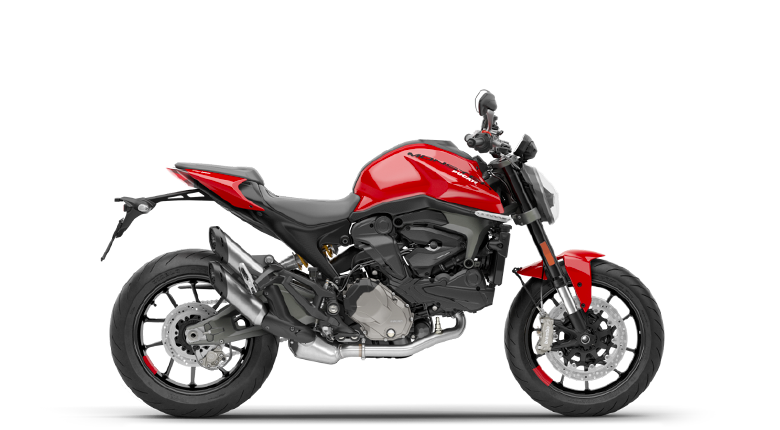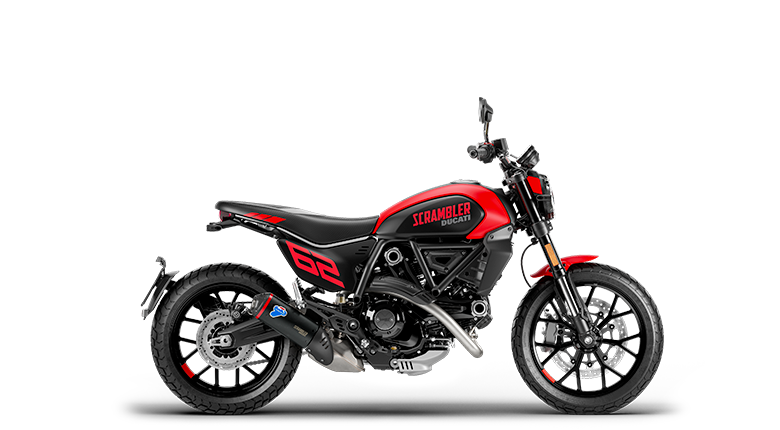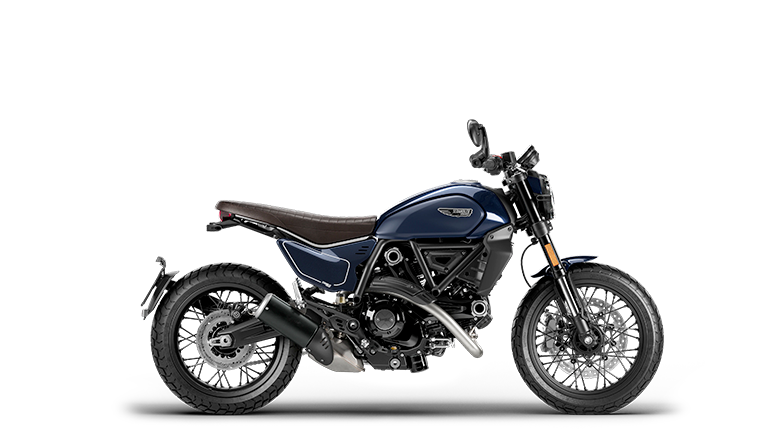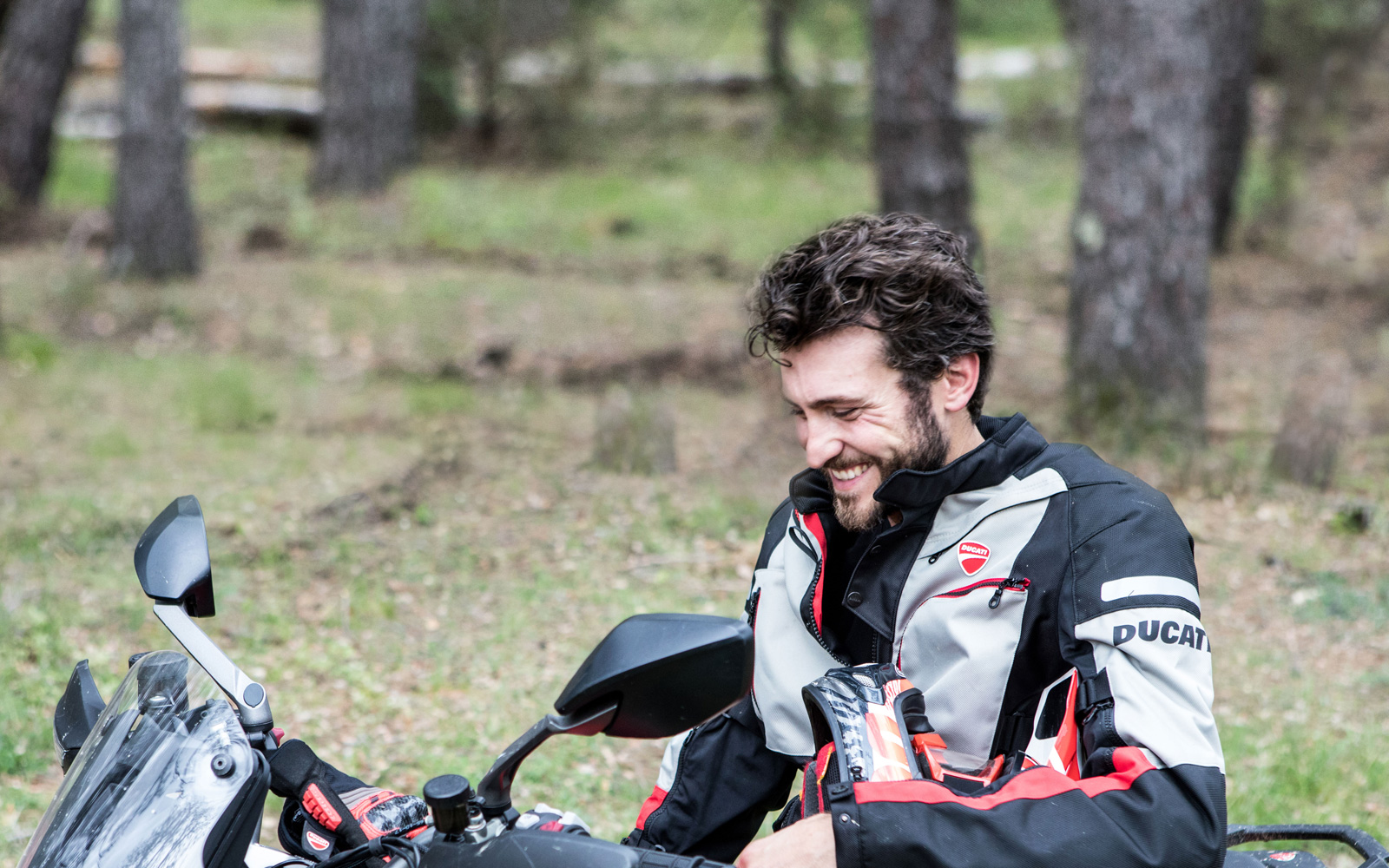- 170 hp Power
- 125 Nm Torque
- 840 mm Seat Height

Epispde 1
Marta Massera
Interview with Marta Massera, June 2018
Long blond hair, a gentle smile and two big eyes, limpid as pools, without a hint of darkness or mystery. She comes off as somewhat reserved, even shy, but once you get her talking about engines, it’s clear that Marta has plenty of determination and a great deal of expertise despite her young age. Qualities that have won her the role of engine designer at Ducati Corse. And if there’s anyone who still thinks that a career in this field is unusual for a young woman, just listen to her story to understand how a passion nurtured over years can lead very, very far.
So Marta, tell us about yourself.
My name is Marta Massera, I’m 29 years old and I am an engine designer at Ducati Corse. I received my degree in mechanical engineering from the Polytechnic University of Milan in 2013 with a specialisation in the design and dynamics of “land vehicles”.
How far back does your love for engines and racing go?
It’s definitely a passion that runs in the family (smiles). My father used to take me to Monza every year to see the Italian leg of the Superbike Championship. I used to get super excited about it as a child. With motorcycling, it was love at first sight!
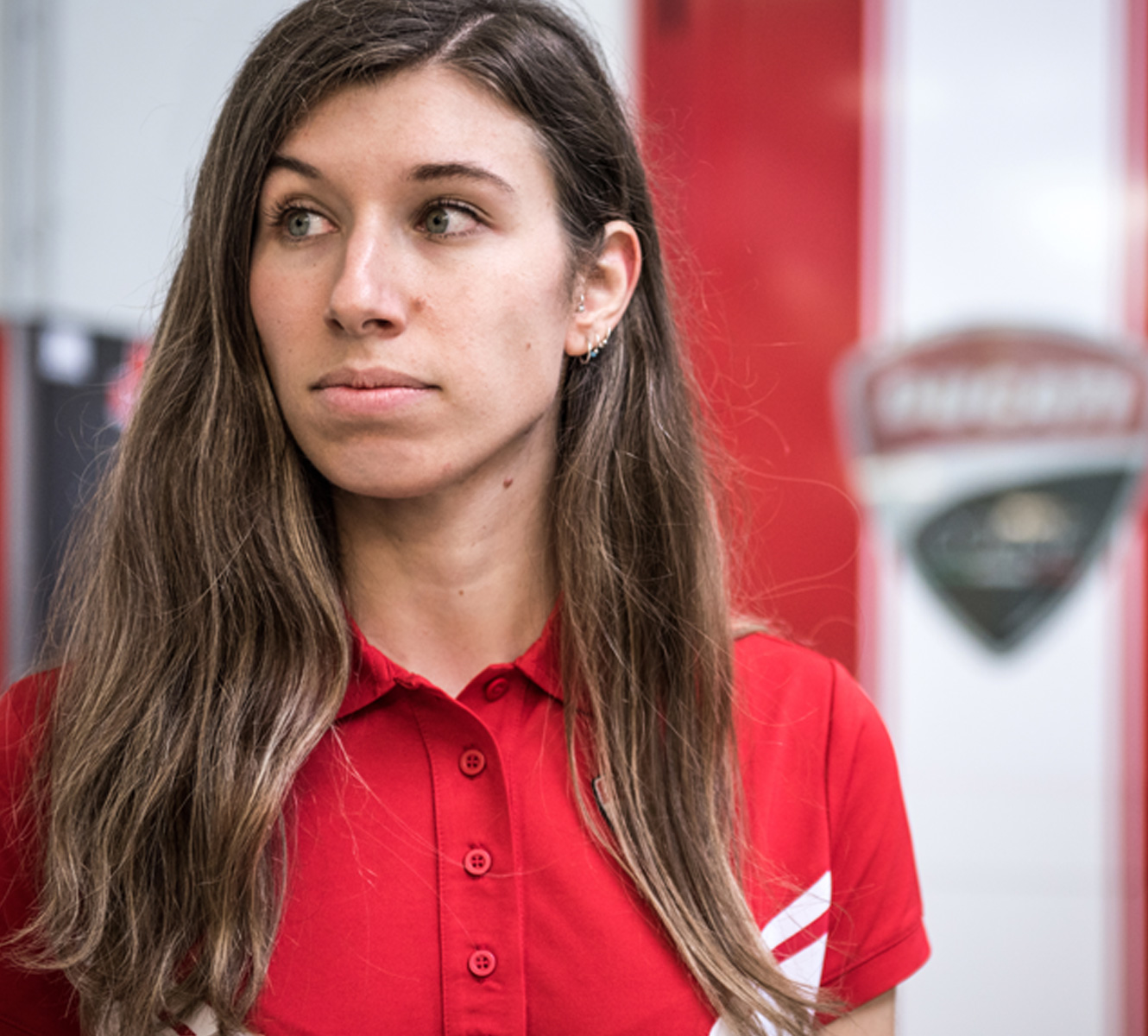
How did you arrive at Ducati?
After my degree, I sent in an application, and after about a year they called me to interview for the position of engine designer at Ducati Corse, which I currently hold.
What was your dream as a young girl?
Naturally I wanted to become a race engineer so that I could be as close to the races as possible! I fantasized about taking part in the technical decisions of the team: track alignment, racing strategies, the relationship with the rider, tyre choices. I am overjoyed to be a part of the engine design department and to have a hand in the racing results. I can’t imagine myself in any better place.
You work in a world that is mostly populated by men. What would you like to say to young women who wish to undertake a career like yours in the field of engines?
Just one thing: having your work be your passion is the best thing in the world. So if the passion is there, never give up! I studied the classics at school and I knew that I was venturing into a mostly male-dominated field. But when you do something you love, the doubts disappear and the satisfaction endures. When people ask me what I do, their reaction is sometimes amazement, curiosity and even admiration. Then again, there are so many motorcycling fans. When the pizza maker near my home found out that I design engines for Ducati, he couldn’t believe it! Since he’s a huge Superbike fan, we ended up talking about racing the entire evening (laughs).
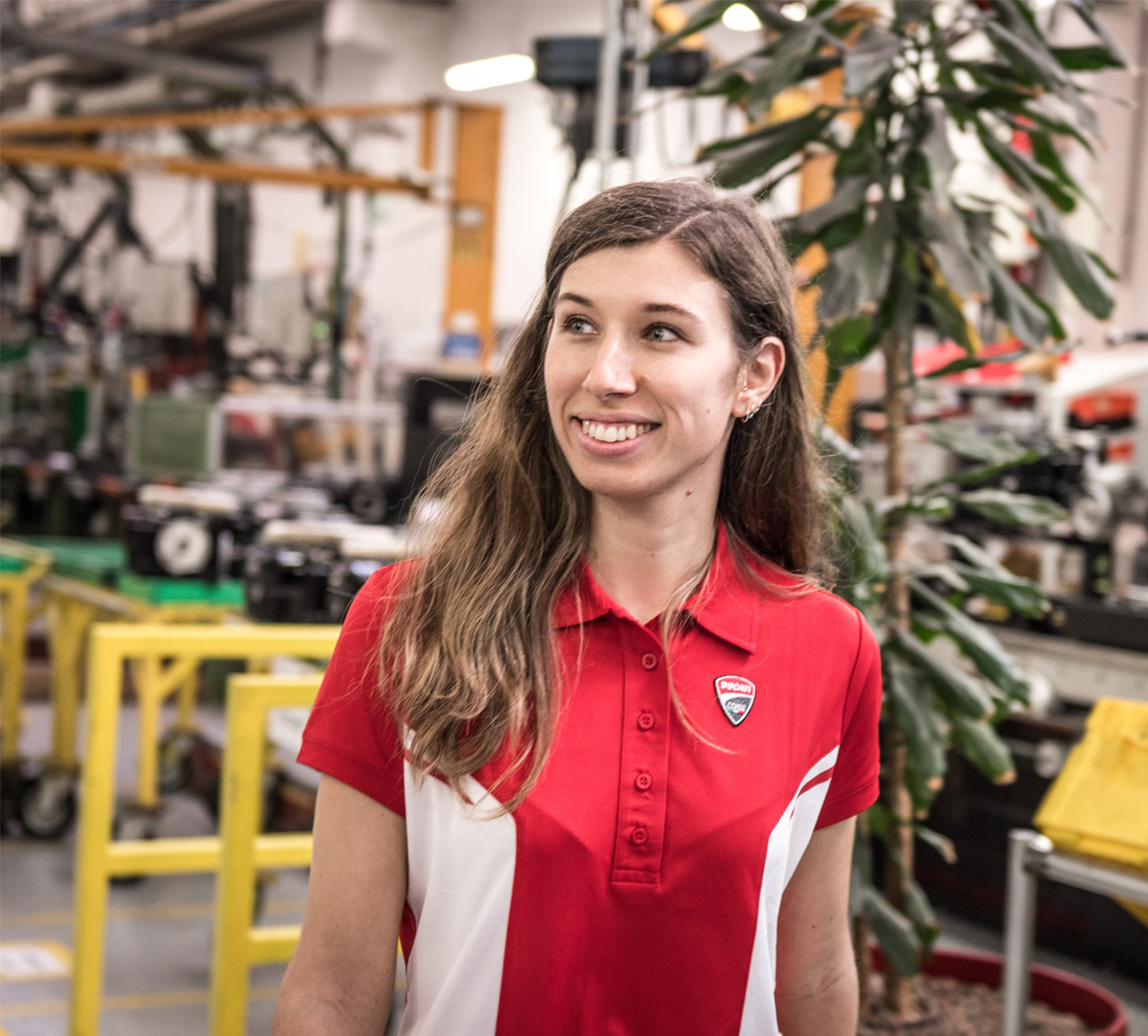
Why is a Ducati engine unique from the perspective of a designer?
The Ducati engine stands out in the races for its speed and performance, and as a designer I can say that this happens thanks to its extraordinary technological content. And also for that reason, the Ducati engine underpins the overall project of the vehicle.
At Ducati, the approach to design is very rigorous and very technical. How important is it to integrate rigour with imagination and creativity?
Extremely important! Creative intuition in our work often allows us to find new solutions also to technically complex problems. Many racing applications, for example, are born out of truly original ideas, that then become the basis of innovative solutions for our sport road bikes. This ability to think out of the box is one of the defining characteristics of Ducati.
Has becoming an engine designer changed your way of viewing the races? Is the excitement the same as when you were young?
Yes, it’s changed. Before I was just a spectator, but now there’s a different sort of tension: the awareness of feeling part of the team, that sense of responsibility. But, seeing the races has remained a great source of happiness, this hasn’t changed!
What do you remember about your first day at Ducati?
It was very intense! When I walked through the doors of the Ducati Corse offices, I have to admit I was nervous, but my colleagues immediately put me at ease. The most wonderful moment was the first tour of the Corse dept. accompanied by my boss. It hardly seemed real to be a few metres away from a MotoGP, to be able to hear that unmistakable sound from up close. It gave me goose pimples! Something I’ll never forget, that's for sure.
Tell us about the feeling within your team.
It's a dynamic atmosphere, where there’s a big spirit of collaboration. Each member is assigned to a specific technical group, but the teamwork is very important because what counts is the end result: to achieve a high-performing engine that is 100% reliable. It’s very stimulating work because each year we push ourselves to develop more ambitious technical solutions, and you need to have an attitude that embraces change and challenges to achieve that constant improvement. All of these are the values at the base of the DNA of Ducati Corse.
Ducati engines have an absolutely unique sound. What do you feel when you hear an engine you’ve helped build “sing” for the first time and that has become a reality after a long design process?
Great pride, of course! And the certainty that I am very fortunate. Turning on a new engine is something of an event at Ducati Corse. We all gather in the test room, then we listen to the engine run for a bit, and then celebrate all the work accomplished and the work to be done in the future. It’s the magic of the mechanics that is repeated... from many formulas spring these exceptional creations that have a strong character and life of their own. For me, Ducati is the highest expression of this uniqueness because it gives life to unconventional products, different from all the rest. Every Ducati bike has a distinctive personality, each is an incredibly exciting experience to ride for anyone.
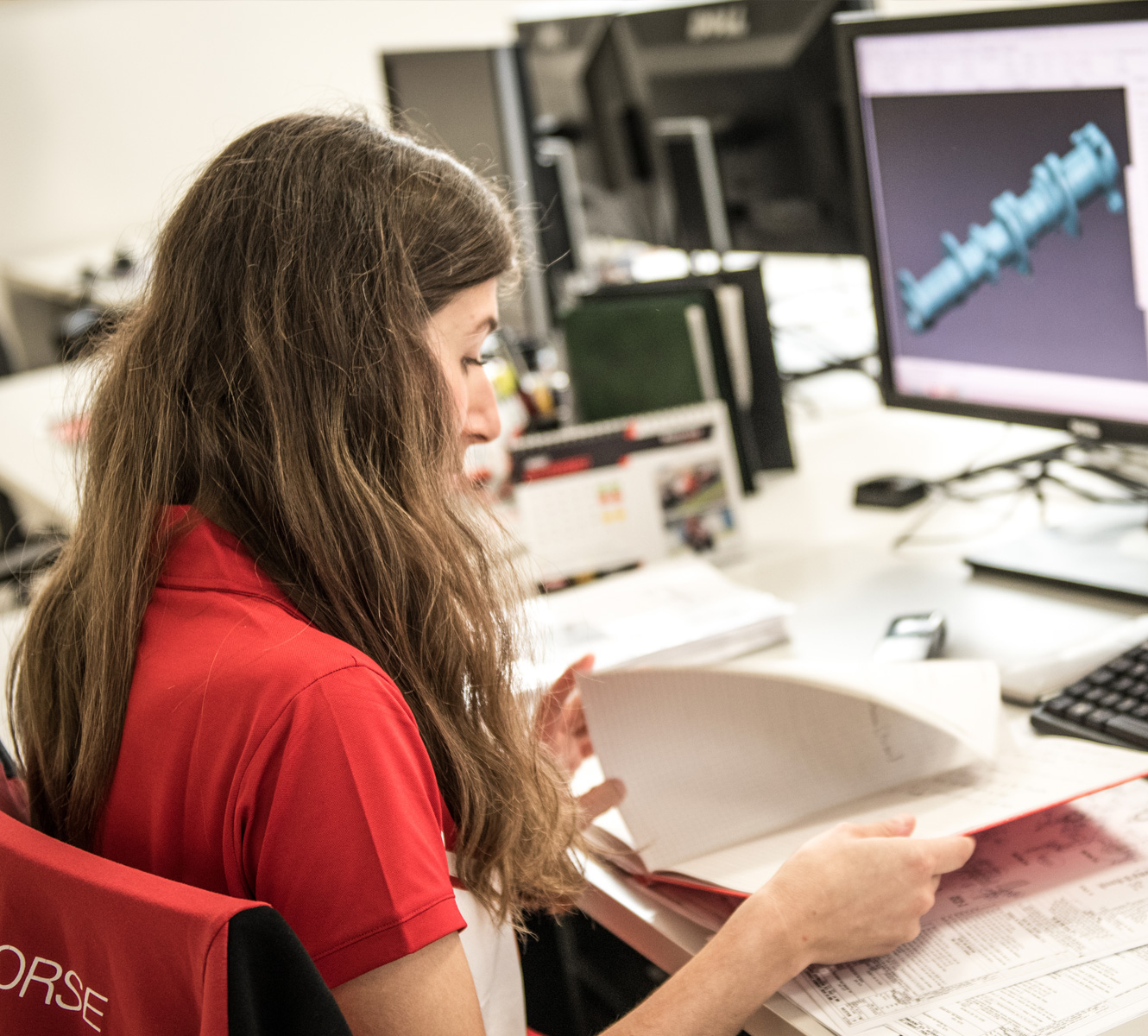
Is there a model and an engine you feel particularly attached to?
The engine of the 1199Panigale R, which is racing right now in the Superbike World Championship. It’s a really fantastic bike, extreme and sophisticated at the same time... I’m proud to have worked on the twin cylinder engine that made the history of Ducati and the Superbike World Championship in its last year. This is an engine that, in a world dominated by four-cylinder engines, won several times, in Championships where the competition really sweat it out. Those were the same years when I was a child developing a passion for the Superbike... the great victories of Troy Bayliss are beautiful memories for me, ones associated with this engine and the beginning of my passion for motorcycles.
Many of the engine innovations that are born for the track are then applied to the models of the road superbike segment. Can you tell us how you approach this process, which is also a design challenge?
The bike’s high level of performance on the current market of the superbike segment is due also to the introduction of content designed to give the maximum performance in the world of racing. We perform a careful study of how to adapt the applications designed for the MotoGP and the Superbike to the road bike, made possible by the strong integration of the Corse dept. within the company. At Ducati, the meeting of the world of production with world of racing is the order of the day. The new Panigale V4, with an engine directly derived from the MotoGP engine is emblematic of this approach. This is one of the greatest things about my work: knowing that you work on a product that will be the source of pure enjoyment for all those who ride it, whether a race rider or a motorcyclist.
What is the philosophy that inspires the people who work at Ducati? Is there a motto you live by?
“Never give up!” is the motto that unites everybody working at Ducati. For us that means never settling for less, it means sharing a great passion and commitment and the desire to make the difference. Always.
Have you got any anecdotes about your career to share?
Well, despite the many years pouring over books, I’ve always liked getting my hands dirty. While I was studying engineering, I had a job in a small garage in my city, Cremona, and it was really important because I got to learn the basics of motorcycling mechanics right on the field. I remember the day when I got a tip from an old lady for simply changing the oil in her Fiat 500
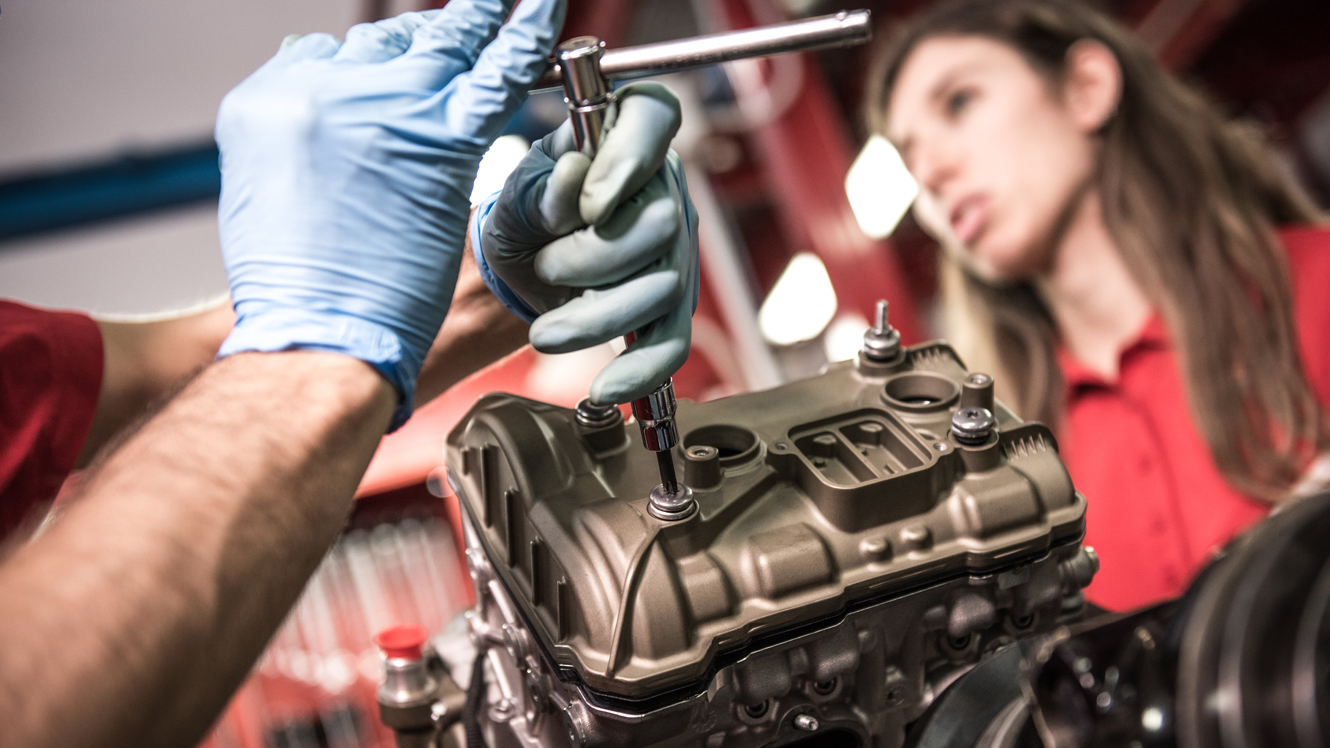
 Malaysia
Malaysia
 Multistrada
Multistrada Streetfighter
Streetfighter Panigale
Panigale Hypermotard
Hypermotard Monster
Monster Scrambler
Scrambler DesertX
DesertX
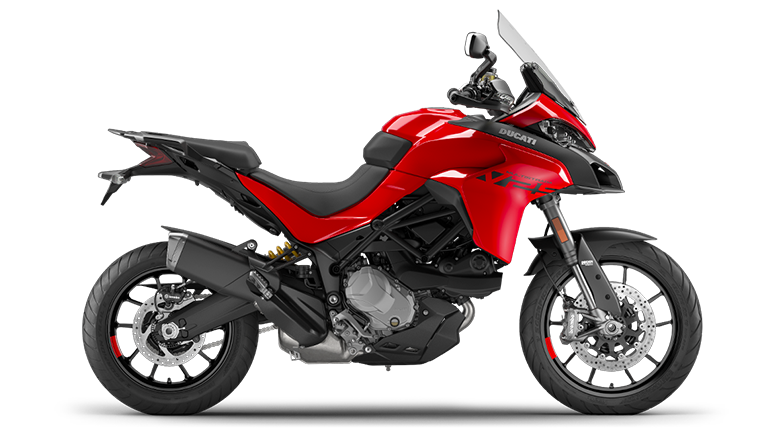

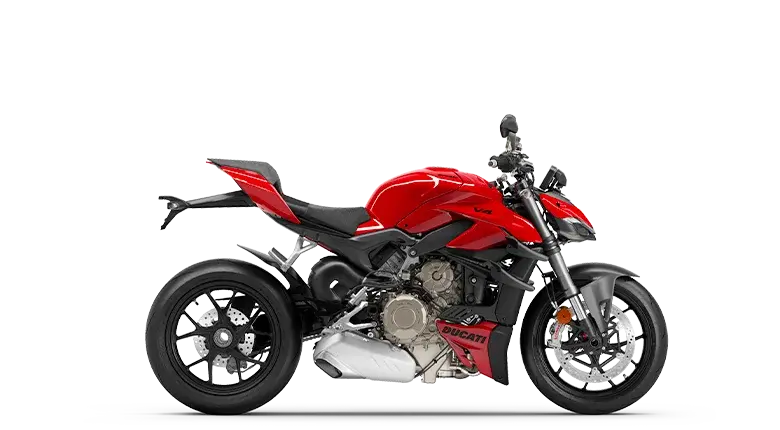
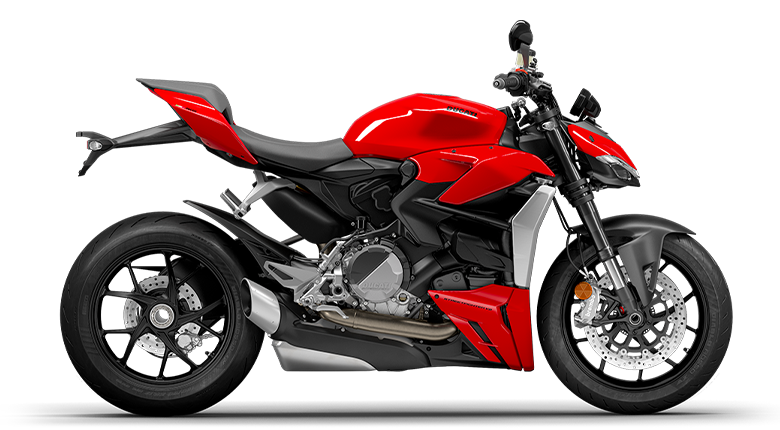
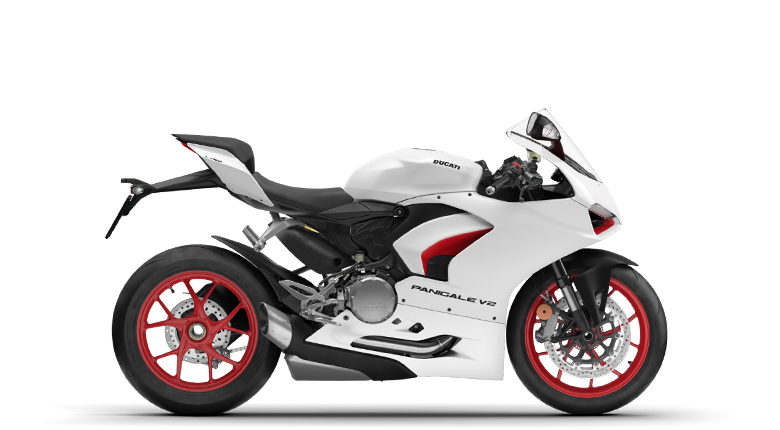
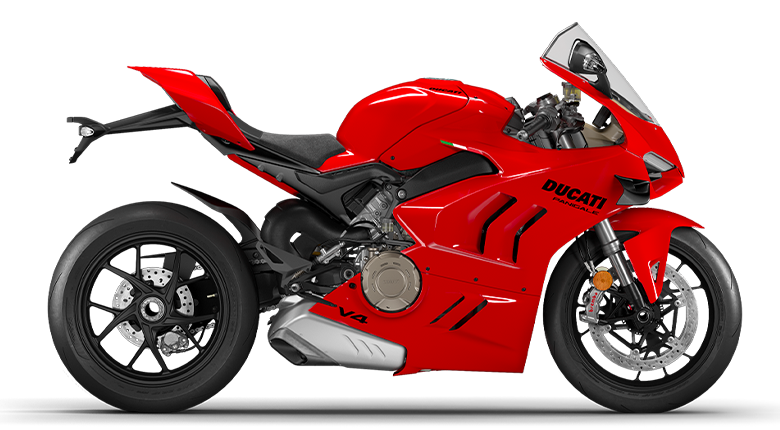
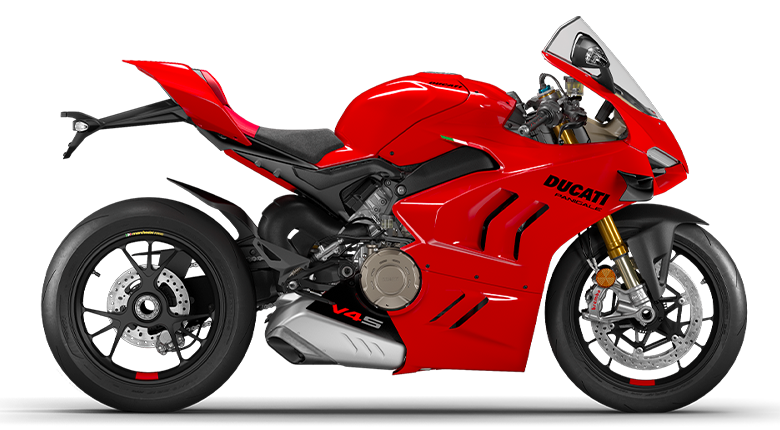
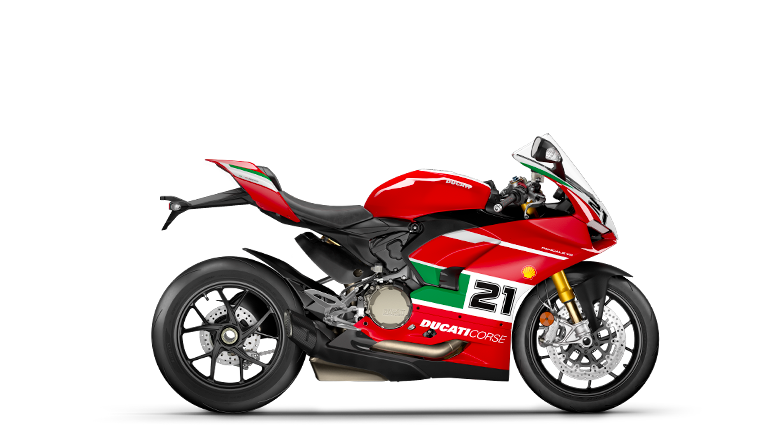
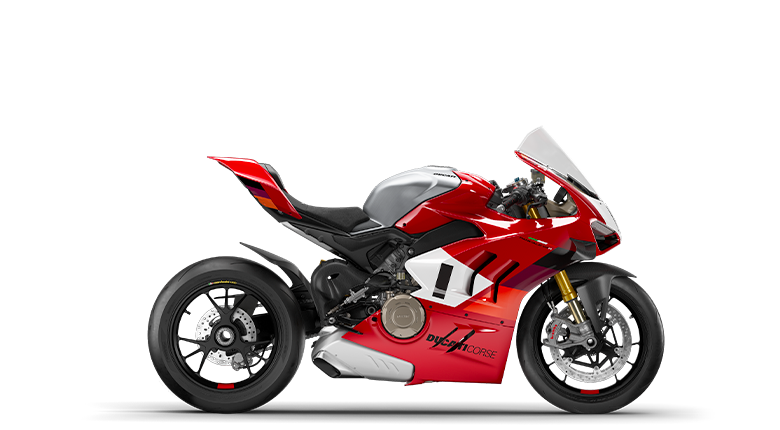
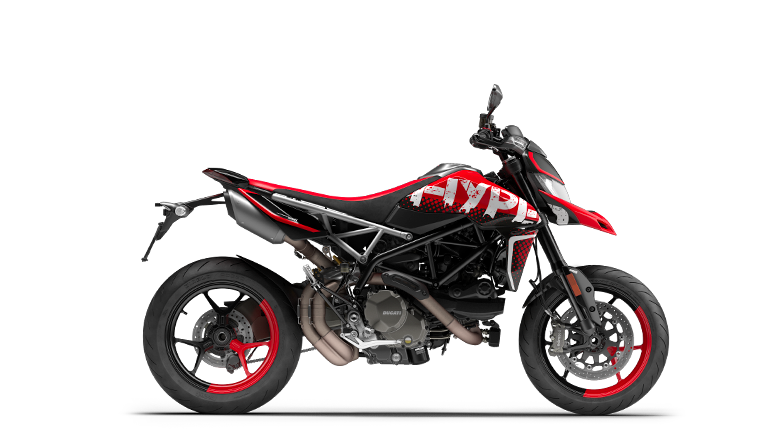
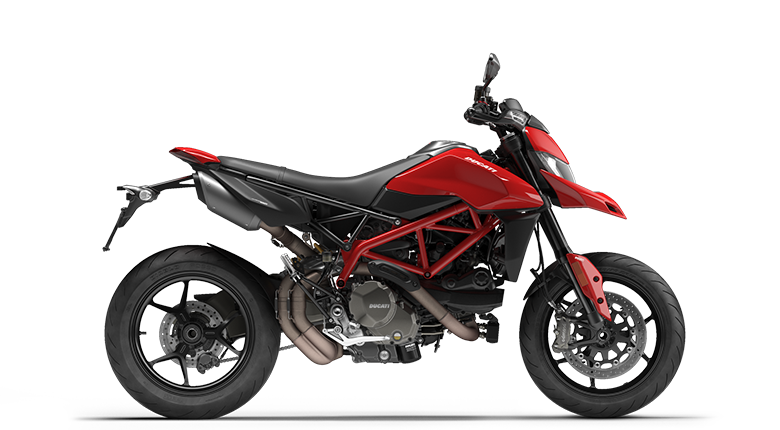
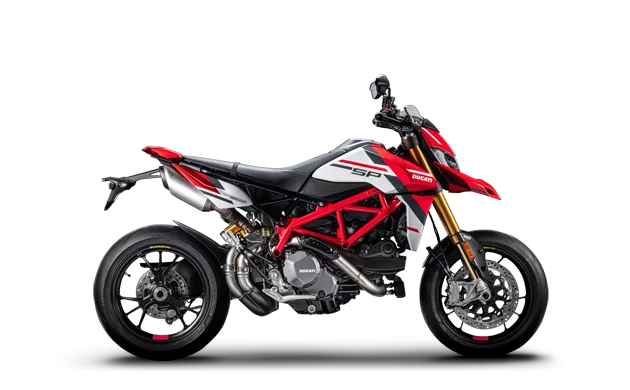
.png)
